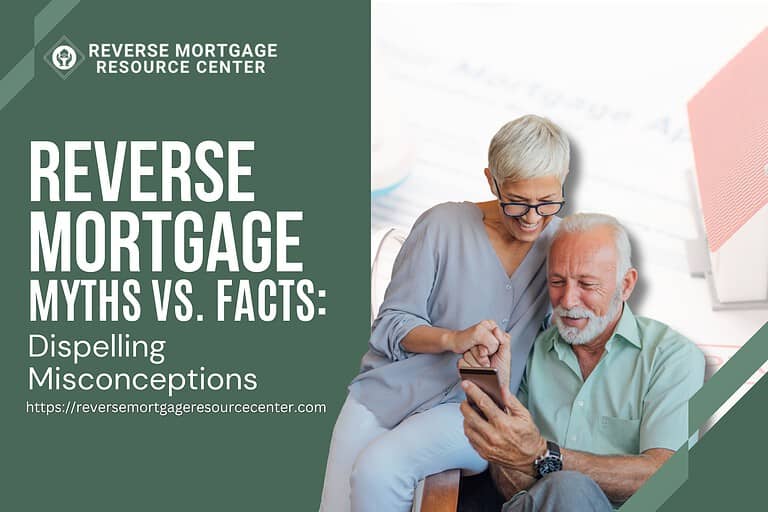Cultural Perspectives on Reverse Mortgages: Diverse Approaches to Financial Planning
As the aging population continues to grow, financial planning for seniors becomes increasingly vital. One financial tool that has gained attention in recent years is the reverse mortgage. However, the perception and utilization of reverse mortgages vary across different cultures. This article delves into the cultural perspectives on reverse mortgages, explores how diverse cultures approach this financial instrument, and suggests strategies for providing culturally sensitive reverse mortgage education to seniors facing financial challenges in their retirement.
The Landscape of Reverse Mortgages
Before delving into cultural perspectives, it’s crucial to understand what a reverse mortgage is and how it functions. A reverse mortgage is a financial product that allows seniors aged 62 or older to convert a portion of their home equity into readily accessible funds. Unlike traditional mortgages, where homeowners make monthly payments, reverse mortgages provide homeowners with access to funds, and the loan is repaid when the homeowner sells the home, moves out, or passes away.
Cultural Influences on Financial Decision-Making
Collectivism vs. Individualism
Cultural values play a significant role in shaping how individuals approach financial decisions, including the consideration of reverse mortgages. In cultures that emphasize collectivism, where the needs of the group outweigh individual interests, decisions regarding housing and finances are often made with the family in mind. In contrast, individualistic cultures may encourage seniors to prioritize personal financial independence.
Understanding these cultural dynamics is essential for financial planners, as they can tailor their advice to align with the values and preferences of the seniors they are assisting.
Stigma Surrounding Debt
Some cultures stigmatize debt, viewing it as a burden that should be avoided at all costs. This perspective may influence seniors to be apprehensive about taking out a reverse mortgage, fearing that it could lead to increased debt. On the other hand, cultures with a more pragmatic approach to debt may see reverse mortgages as a strategic financial tool to enhance their retirement lifestyle.
Attitudes Toward Homeownership
Cultural attitudes toward homeownership also significantly impact seniors’ views on reverse mortgages. In cultures where owning a home is considered a symbol of success and stability, seniors may be more reluctant to consider a financial product that seemingly erodes their home equity. On the contrary, in cultures where housing is viewed as a practical necessity rather than a status symbol, seniors may be more open to exploring reverse mortgages as a means of improving their financial situation.
Strategies for Providing Culturally Sensitive Education
Language and Communication
Effective communication is key when providing financial education to seniors from diverse cultural backgrounds. Offering materials in multiple languages ensures that information is accessible to all, breaking down language barriers. Additionally, utilizing culturally sensitive communication styles and avoiding jargon can enhance seniors’ understanding of complex financial concepts.
Community Engagement
Engaging with cultural communities through workshops, seminars, or community events can be an effective strategy. By partnering with community leaders and organizations, financial planners can establish trust and credibility within these communities, making seniors more receptive to considering reverse mortgages as a viable option.
Customized Approaches
Recognizing that a one-size-fits-all approach does not work when it comes to financial planning, tailoring advice to match cultural nuances is essential. Financial planners should be aware of specific cultural attitudes towards homeownership, family dynamics, and financial obligations, incorporating these factors into personalized financial plans.
Case Studies: Cultural Approaches to Reverse Mortgages
East Asian Cultures
In many East Asian cultures, such as Chinese or Korean, the importance of leaving an inheritance for future generations is deeply ingrained. This cultural value may lead seniors to be hesitant about depleting their home equity through a reverse mortgage. Financial planners can address these concerns by highlighting how a reverse mortgage can still allow for inheritance while providing immediate financial relief.
Moreover, in these cultures, there is often a strong emphasis on intergenerational support. Seniors may be more inclined to explore reverse mortgages if they perceive it as a means of lessening the financial burden on their children or ensuring a comfortable living environment for their grandchildren. It’s crucial for financial planners to convey the potential positive impact of reverse mortgages on family dynamics and the broader community.
Latino Cultures
In Latino cultures, strong family bonds often influence financial decisions. Reverse mortgages might be viewed positively if they contribute to the well-being of the entire family. Educating seniors on how a reverse mortgage can enhance their quality of life while allowing them to support their loved ones financially can be a persuasive approach.
Additionally, considering the cultural importance of celebrations and gatherings, financial planners can highlight how a reverse mortgage can provide funds for family events and milestones. This approach aligns with cultural values, presenting reverse mortgages not only as a financial tool for individual benefit but also as a means of reinforcing familial connections and traditions.
African American Communities
In African American communities, historical disparities in homeownership and wealth accumulation have a profound impact on financial decision-making. Seniors from these communities may approach reverse mortgages with caution due to a history of housing discrimination and a desire to preserve any accumulated home equity for future generations.
Financial planners working with African American seniors should address these concerns by providing a historical context for the disparities and explaining how a reverse mortgage can be a tool for bridging some of these gaps. Empowering seniors to make informed decisions that align with their cultural values and contribute to the economic advancement of their families can be a powerful motivator.
Native American Tribes
Within Native American communities, a deep connection to land and community often shapes financial decisions. Seniors may be hesitant to explore reverse mortgages due to concerns about the impact on ancestral lands or communal property. Financial planners should approach these discussions with respect for cultural values, acknowledging the significance of land in Native American identity.
Customizing reverse mortgage education for Native American seniors may involve exploring alternatives, such as shared appreciation agreements or land trusts, to address their unique concerns. Collaborating with tribal leaders and elders to ensure that the financial advice aligns with cultural traditions can build trust and facilitate more open conversations about reverse mortgages.
Middle Eastern Cultures
In Middle Eastern cultures, extended family support and respect for elders are paramount. Reverse mortgages may be viewed through the lens of maintaining financial independence while upholding familial obligations. Financial planners can emphasize how a reverse mortgage allows seniors to age in place, avoiding potential burdens on their family members, and ensuring they have the means to cover healthcare and other essential expenses.
Moreover, in these cultures, there may be a preference for leaving a financial legacy. Financial planners can illustrate how a reverse mortgage, when used strategically, can preserve home equity for inheritance purposes, aligning with the cultural value of generational wealth and familial continuity.
REVERSE MORTGAGE RESOURCE CENTER ~LIVE LIFE ON YOUR TERMS~
Our Lending Team has been serving our clients since 2004. We are passionate about serving our clients with integrity to help them achieve their financial goals.







